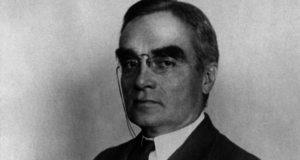In the wake of the terrorist attacks in Paris, freedom of expression is coming back to centre stage. This week, the National Post reported that Humanist Canada and Centre for Inquiry- two organizations dedicated to promoting secularism – will ask the Department of Justice to abolish section 296 of the Criminal Code, which prohibits “blasphemous libel.”
Section 296 was enacted well over a century ago, and no individual has been prosecuted under that law since 1935. However, it remains the case that a law does not become invalid simply because it has been dormant for years or even decades. The rule of law demands that all laws on the books be faithfully executed where appropriate.
In other words, section 296 cannot simply be ignored; if we wish to do away with the law, then affirmative steps must be taken to abolish it.
Section 296 has been cited in a handful of cases since the Charter of Rights and Freedoms was enacted in 1982, but its constitutionality has never been before the court. Were an individual to be charged and prosecuted under section 296, it is highly doubtful that the law would survive a constitutional challenge.
To begin with, section 296 is utterly vague. It does not define “blasphemous libel” and instead leaves it to the trier of fact in each case to determine what constitutes blasphemous libel. The real-world consequence is that anyone prosecuted under this section would not know the case to meet and would be unable to provide a full answer and defence. The law should therefore be struck down as void for vagueness.
Secondly, prohibiting the publication of “blasphemous libel” is not a reasonable limit on freedom of expression. Unlike the hate speech provisions of the Criminal Code, which at least have the ostensible purpose of preventing harm caused by hate propaganda, section 296 does not further any valid government objective. What is more, a court would almost certainly conclude that the law does not “minimally impair” freedom of expression since section 296 is posited in open-ended language and provides for a prison sentence of up to two years.
Humanist Canada and Centre for Inquiry should be applauded for taking the lead on abolishing a law that has no good place in a free and democratic society.
 Advocates for the Rule of Law
Advocates for the Rule of Law




One comment
Pingback: Canada’s Blasphemous Libel Law |